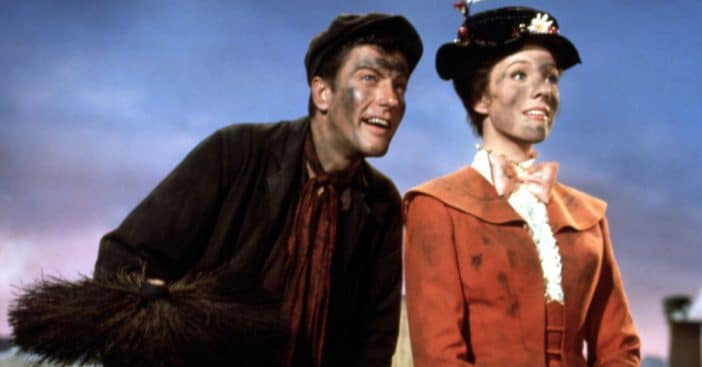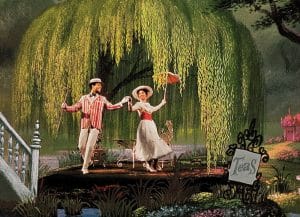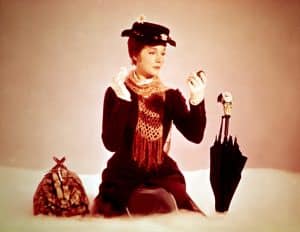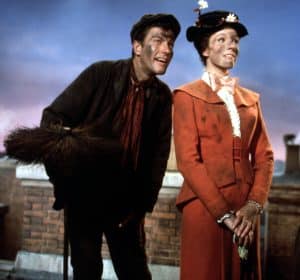
Six decades ago, Julie Andrews and Dick Van Dyke charmed the world with Mary Poppins, an immediate commercial and critical success. At the time of its release, it became Disney’s highest-grossing film. While it had been promoted as a fun family film, however, its rating has officially changed overseas from a U to PG. Why?
The move comes from the British Board Of Film Classification (BBFC); by the time of writing, Mary Poppins remains rated G by Disney in the U.S. The U.K., however, has changed it from a U to a PG due to “discriminatory language.” Here’s where the issue arises.
The U.K. changes ‘Mary Poppins’ maturity rating from U to PG

Changing a rating from U to PG means that a film requires parental guidance and some scenes may be unsuitable for children, a classification that now applies to Mary Poppins in Britain. Films rated U have no material that is likely to offend or harm. The issue, in part, comes from a term used by Admiral Boom, played by Reginald Owen.
RELATED: Julie Andrews Tried to Kill Mary Poppins and Maria von Trapp by Baring Her Breasts — It Didn’t Work
“Mary Poppins contains ‘two uses of the discriminatory term ‘hottentots,'” a BBFC spokesperson told USA TODAY, ” The term “hottentots” is a derogatory term used by colonizers in South Africa to refer to the indigenous Khoikhoi people. When Admiral Boom uses the term, it is in reference to the soot-covered faces of the chimney sweeps in the film.
Admiral Boom uses it again to ask the child Michael, played by Matthew Garber, if he’s planning an adventure to “defeat hottentots.”
The greater context

“While Mary Poppins has a historical context, the use of discriminatory language is not condemned, and ultimately exceeds our guidelines for acceptable language at U,” the spokesperson continued, “We therefore classified the film PG for discriminatory language.”
Reclassification occurs once every four or five years and involves “extensive consultation with thousands of people.”

The spokesperson further explained, “We understand from our racism and discrimination research, and recent classification guidelines research, that a key concern for people, parents in particular, is the potential to expose children to discriminatory language or behavior which they may find distressing or repeat without realizing the potential offense.”
Changing the rating from U to PG comes as Mary Poppins is set to make a theatrical rerelease in the U.K. for its 60th anniversary.
